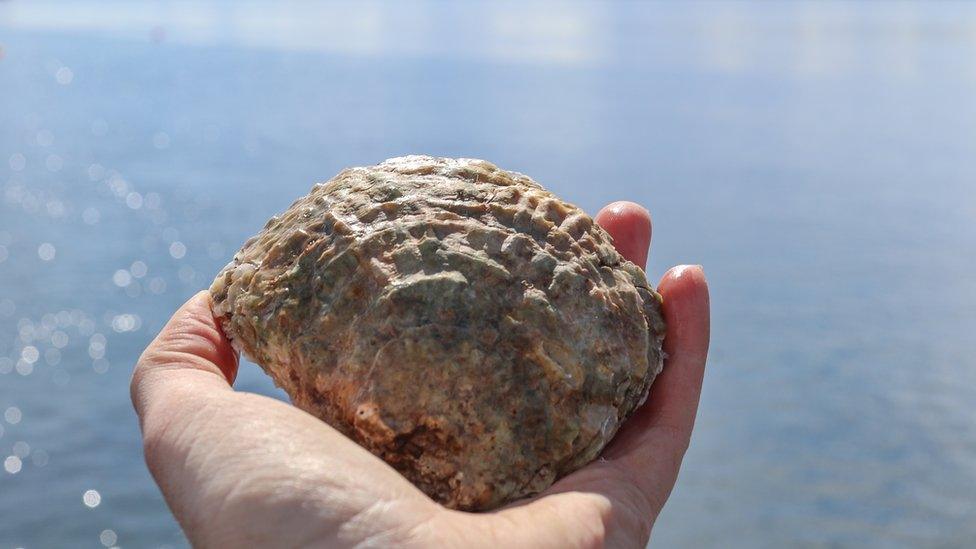Whitburn: 10,000 oysters released on to reef to help clean sea
- Published
Celine Gamble and members of the Wild Oysters Project release the last of the 10,000 oysters at Sunderland Marina
About 10,000 native oysters have been released onto a manmade reef off the North East coast aimed at helping to remove pollutants from the sea.
Conservationists said the under water platform, off Whitburn, South Tyneside, should create a new marine ecosystem.
More than 750 tonnes of old stones and scallop shell have been lowered onto the seabed in recent weeks.
It is part of plans from the Wild Oysters Project to tackle declining numbers across the UK.
The molluscs help to create healthy coastal environments, helping to reduce nitrogen levels by absorbing it into their shells and tissue.
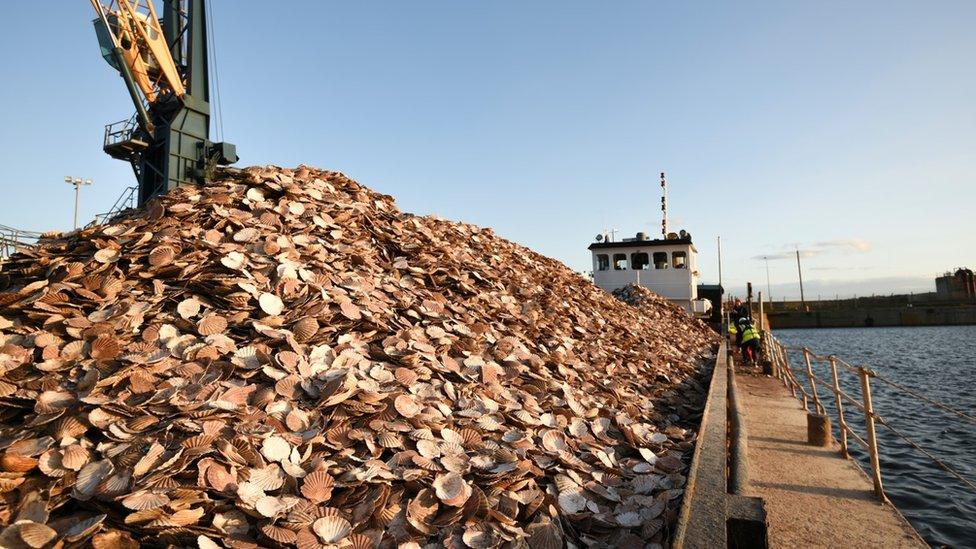
The oysters will be left to reproduce and potentially spread to other waters
They have been dubbed "superheroes" of the oceans because of their ability to filter 200 litres of water a day each, which is enough to fill a bath.
Oysters have historically been a part of the local North East culture, with "oyster saloons" in Tynemouth and oyster specialist fish markets in South Shields in the mid-1800s.
Newcastle city centre was once home to Oystershell Hall - a house decorated with Oysters - situated in the aptly-named Oystershell Lane, off Corporation Street.
National numbers have declined by over 95% since the 1800s, with the significant decline due to habitat loss, over-harvesting, pollution and disease.
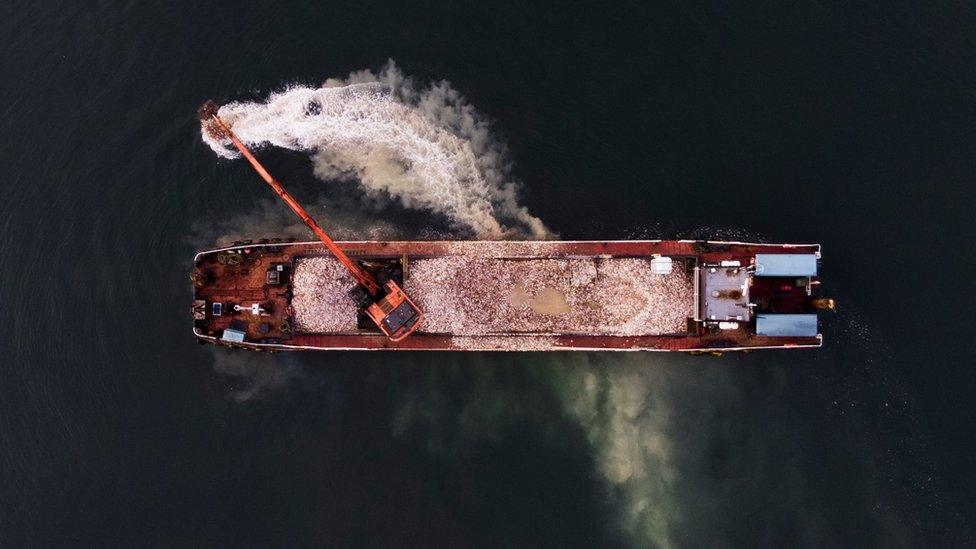
The oysters were released into the sea on Monday morning
The oysters will not be farmed to be eaten but will be left to reproduce and potentially spread to other coastal waters.
The project is made up from the Zoological Society of London, Blue Marine Foundation, British Marine and Groundwork North East and Cumbria.
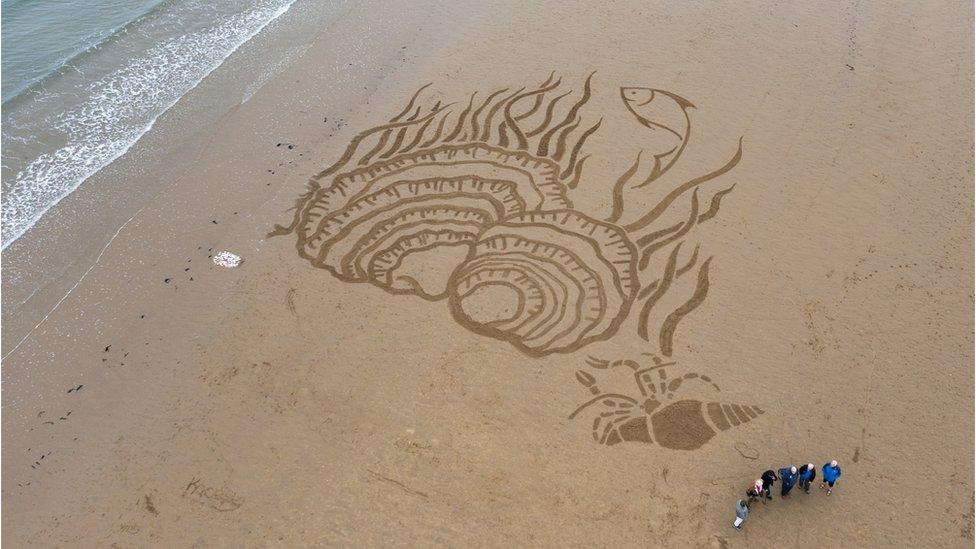
Artists celebrated the expected release of oysters with artwork on Roker beach
"We're optimistic that the 10,000 oysters will thrive, reproduce and grow on the new reef, which is the size of a football pitch, and we look forward to carefully monitoring their progress over the coming months," said project manager Celine Gamble.
"Native oyster reefs have disappeared from our British coastline, and with this, we have also lost the benefits that they bring, such as providing essential habitat for other marine species.
"We're determined to bring the species back from the brink of extinction, which will in turn help contribute towards healthier and more resilient coastal waters across the UK."

Follow BBC North East & Cumbria on X (formerly Twitter), external, Facebook, external and Instagram, external. Send your story ideas to northeastandcumbria@bbc.co.uk, external
Related topics
- Published29 June 2023
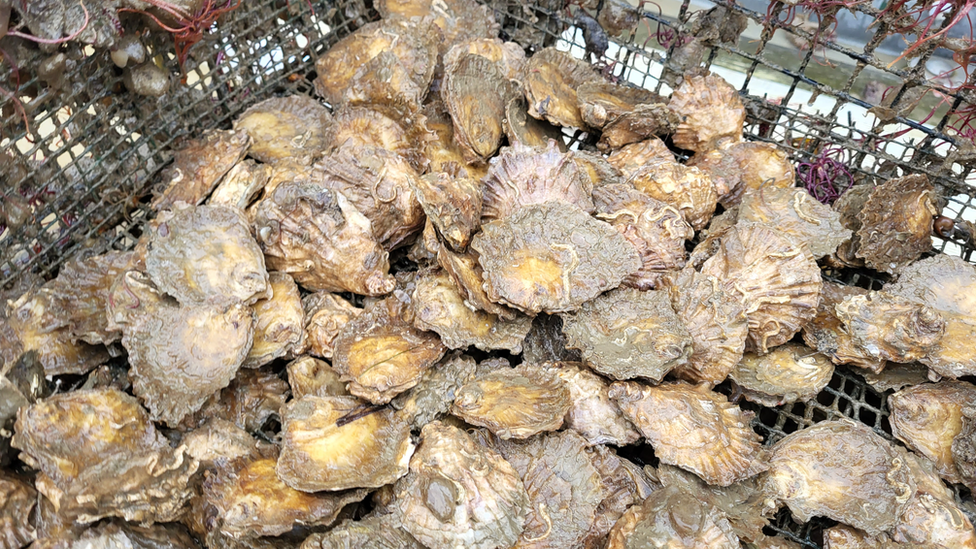
- Published26 April 2023
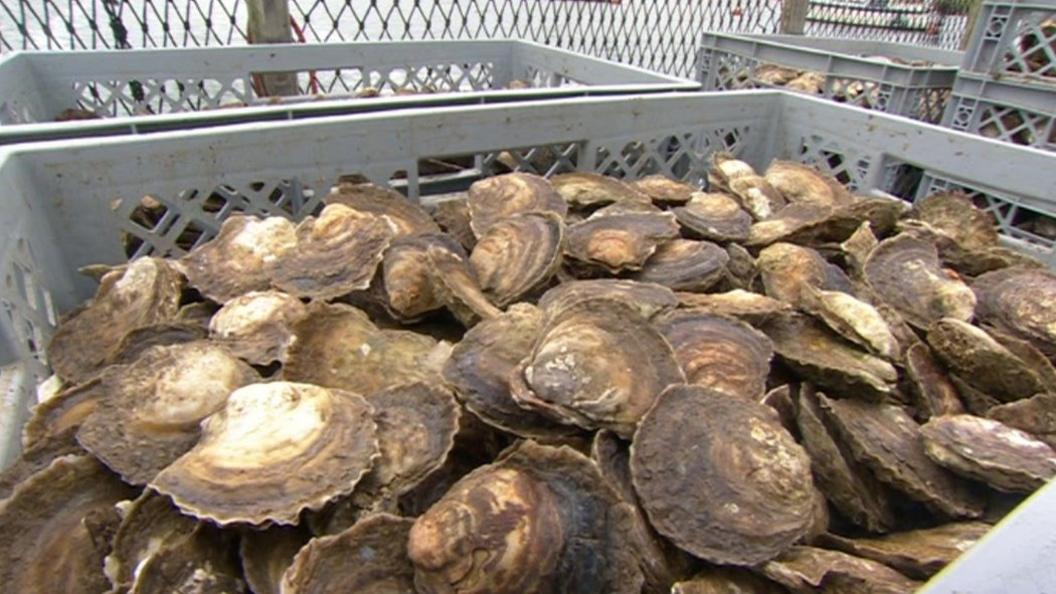
- Published13 May 2021
